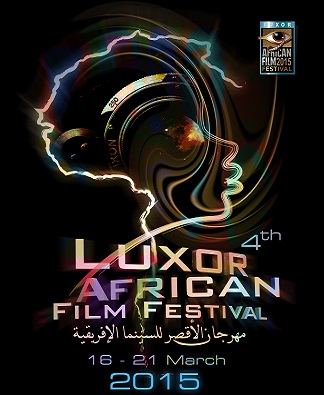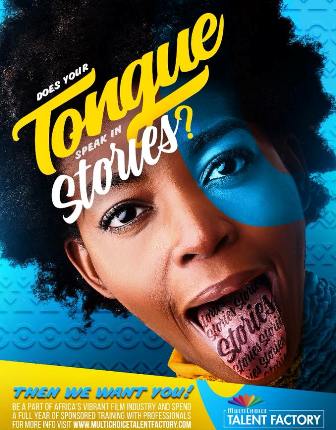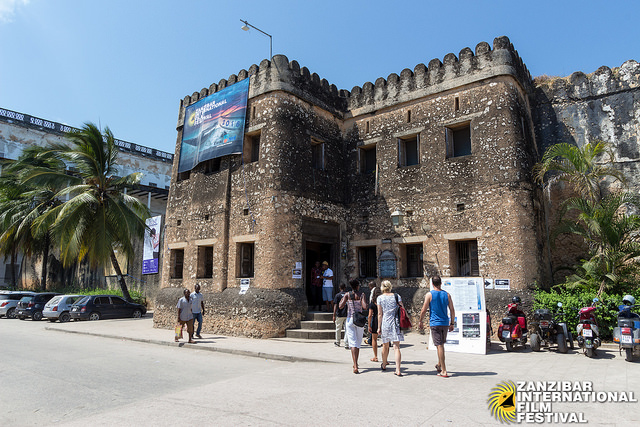By Irene Gaitirira with Ogova Ondego
Published March 24, 2015
 The 4th annual Luxor African Film Festival (LAFF) that ran March 16 – 21, 2015 ended in the Egyptian capital, Cairo, with an awards ceremony for screened films and US$5000 support for African film projects in development.
The 4th annual Luxor African Film Festival (LAFF) that ran March 16 – 21, 2015 ended in the Egyptian capital, Cairo, with an awards ceremony for screened films and US$5000 support for African film projects in development.
RELATED: Luxor African Film Festival’s Fund Selects African Film Projects to Develop
While THE BLUE ELEPHANT that is directed by Marwan Hamed of Egypty was declared the best fiction movie and BEATS OF THE ANTONOV directed by Sudanese filmmaker Hajooj Kuka won first prize for the best documentary movie, Tunisian movies–ROSE AND SIGNALMAN and MOTHER EARTH–won the prize for the best short film.
Other award winners included THE DREAM OF SHAHRAZAD directed by South African Francois Verster (al Husseiny Abu Daif Prize) and THE TIME IS COMING by Egyptian director Dina Hamza (Radwan el Kashef Prize).
Receiving Special Mention were WAVES directed by Egyptian documentary filmmaker Ahmed Nour and THE SUPREME PRICE directed by Nigerian moviemaker Joanna Lipper.
Formed by the Independent Shabab Foundation, a non-profit organisation in Egypt under the auspices of Egypt’s Ministry of Culture, LAFF aims to promote screening of African movies in the North African Country. This year, the LAFF event saw participation from 41 Countries in Africa coming together for a celebration of the arts and culture and to learn from directing and scriptwriting workshops led by leading African filmmakers.
As part of the LAFF’s objective to grow and nurture the Arts in Africa, the festival in 2014–with the support of private sector institutions–launched the Space to Establish Partnership Programme (STEP) competition to support the development of long narratives by young African filmmakers, specifically concerning their first or second work. The 2015 STEP programme was supported by private organisations Qalaa Holdings, a leading Egyptian investment company in infrastructure and industry and ETISAL Fund Management of Egypt.
RELATED: Nairobi Youth Delivers Contemporary Movies through Patience, Perseverance and Persistence
The 2015 installment of the STEP programme drew a record 59 film submissions from across Africa competing for the US$5000 prize to fund the development and pre-production phase of the winner’s first or second work of film. The competitors were clustered in four film categories: Long Narrative Competition; Long Documentaries Competition; Short Films Competition; and Freedom Competition.
 Five projects–two each from Egypt and Rwanda and one from Madagascar–were selected for funding under the STEP programme by LAFF.
Five projects–two each from Egypt and Rwanda and one from Madagascar–were selected for funding under the STEP programme by LAFF.
The projects selected were STARTING DATE directed by Yasser Shefeie and THE PUPPETMASTER directed by Nermin Salem of Egypt; DISCO AFRICA directed by Luck Razanajaona of Madagascar; and NINE LETTERS directed by Phillip Mbabazi and MERCY OF THE JUNGLE directed by Joel Karekezi both from Rwanda.
“We firmly believe that promoting the arts is one of the best ways to build cultural bridges and discover how much we have in common; one history and one destiny,†said Ghada Hammouda, CMO and Head of Communications at Qalaa Holdings, who in addition to the sponsorship of the festival, also sponsored an award for the best short film category and a special workshop for long feature films.
The Luxor African Festival is a platform for unifying Africa through culture, while celebrating the diversity of the continent. It is a chance to show the alternative Africa Rising rhetoric–A youthful populace that celebrates and embraces it’s Africanness; a different landscape than was the case two decades ago.
RELATED: How and Why Kenya Film Commission Was Created
The support in nurturing the talent in the Arts by private institutions such as Africa Investment Company Qalaa Holdings demonstrates a different kind of inclusive growth taking shape in Africa- where policy makers and business leaders integrate and nurture the social cultural space to enable youth development and advancement of enterprise through the arts.
“The Africa film industry is still relatively immature with a long way to go before it can catch up to those of Western Countries. Encouraging participation in the sector through programmes such as STEP is a step in the right direction as it will help not only in training but also in instilling confidence in young African filmmakers to help them advance their careers.†said Ms. Neema Reed, a film producer and actress from Tanzania.





